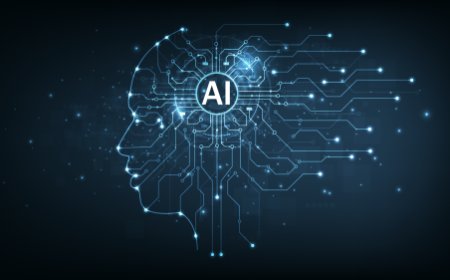Certified Artificial Intelligence Expert
Certified AI Expert bridges technology and business needs, focusing on AI strategy, development, and application.

Artificial Intelligence (AI) is a pivotal innovation, easily connecting to everyday life and revolutionizing industries. The journey to becoming a Certified Artificial Intelligence Expert is multifaceted, promising substantial rewards for those committed to continuous learning and practical application. It involves acquiring a deep understanding of AI principles, mastering technical skills, and staying abreast of urgent advancements. This path not only demands rigorous study and hands-on experience but also an ethical approach to AI development and application, highlighting the significance of responsible innovation.
The Demand for AI Skills
The increasing integration of AI technology across sectors underscores a critical demand for proficient professionals capable of managing and optimizing AI systems. Businesses leverage AI to enhance operational efficiency, drive service innovation, and secure competitive advantages. This surge in AI adoption has amplified the need for skilled experts, as organizations seek to harness AI's potential to transform processes, decision-making, and customer engagement, thus opening vast opportunities for AI specialists.
The Skills Gap
Despite the increased demand, there's a noticeable gap between the need for AI skills and the availability of trained professionals. This gap is partly due to the fast pace at which AI technologies evolve, surpassing the update rate of educational curricula and professional training programs. Moreover, the requirement for a multidisciplinary approach in AI, including computer science, mathematics, ethics, and domain-specific knowledge, complicates the skill acquisition process.
How Can One Become a Certified Artificial Intelligence Expert?
To bridge the AI skills gap, a focused educational and certification route is essential. Prospective AI professionals often seek the most effective way to acquire the necessary knowledge, skills, and recognition to succeed in this dynamic field. What steps are involved, and what should be considered to become a certified AI expert?
A Structured Path to AI Expertise
1. Fundamental Knowledge
A robust computer science and mathematics foundation is indispensable for anyone aspiring to excel in artificial intelligence. Mastery in programming languages like Python or R, along with a deep understanding of data structures, algorithms, and mathematical disciplines such as linear algebra, calculus, and statistics, sets the stage for the development and comprehension of AI models. This fundamental knowledge equips individuals to tackle complex AI challenges, enabling them to innovate and create sophisticated AI-driven solutions.
2. Specialized AI and ML Learning
Building on a strong foundational knowledge, the next step involves delving into specific Artificial Intelligence (AI) and Machine Learning (ML) concepts. This includes exploring various learning algorithms, neural networks, deep learning techniques, natural language processing, and computer vision. A plethora of educational avenues, including specialized courses, intensive boot camps, and comprehensive university programs, are available to cover these crucial topics, providing learners with the necessary tools and knowledge to navigate the advanced scenes of AI and ML.
3. Hands-on Projects
The practical application of theoretical knowledge through hands-on projects and challenges is vital for cementing understanding in the AI domain. Engaging in diverse projects, from straightforward applications to intricate AI solutions, is crucial for skill development. Additionally, involvement in hackathons and competitions offers invaluable experience and exposure, allowing individuals to test their skills in real-world scenarios, network with peers, and showcase their capabilities to potential employers or collaborators.
4. Ethical Considerations in AI
Understanding the ethical dimensions of AI applications is imperative, emphasizing the importance of fairness, transparency, privacy, and security. A certified AI expert is expected to adeptly navigate the ethical environment, ensuring that AI development and deployment are conducted responsibly. This includes making informed decisions that prevent bias, safeguard user data, and maintain the integrity of AI systems, thereby fostering trust and accountability in AI technologies and their impact on society.
5. Certification and Ongoing Learning
Achieving certification in the AI field serves as a formal recognition of the expertise and skills acquired, showcasing a professional's capabilities to both employers and peers. These certifications act as a testament to one's dedication and proficiency in AI. Given the dynamic nature of artificial intelligence, professionals must engage in continuous learning and skill enhancement to stay abreast of the latest developments and methodologies in the field.
6. Collaboration and Networking
In the journey to becoming a certified AI expert, the importance of collaboration and networking cannot be overstated. Engaging with a community of AI enthusiasts and professionals through forums, conferences, and professional networks enriches the learning experience. It provides opportunities to exchange ideas, receive feedback on projects, and form partnerships. Such interactions can also lead to collaborations on projects that tackle real-world problems, further honing one’s skills and broadening their understanding of the field’s application across different domains.
7. Industry Specialization and Domain Knowledge
After gaining a solid grounding in AI and ML fundamentals and engaging in hands-on projects, specializing in a particular industry or acquiring domain-specific knowledge can be a strategic move. Whether it’s healthcare, finance, robotics, or another field, understanding the unique challenges and opportunities of a specific domain allows AI professionals to apply their skills more effectively and contribute to innovations that address real-world needs. This specialization not only enhances one’s value as an AI expert but also opens doors to targeted career opportunities.
8. Participation in Research and Development
For those inclined towards the cutting edge of AI, participation in research and development (R&D) initiatives presents an avenue to explore new theories, technologies, and methodologies. This can involve working with academic institutions, research labs, or industry R&D departments. Engaging in research allows professionals to contribute to the growth of AI knowledge, potentially leading to breakthroughs and advancements. It also keeps professionals at the forefront of technology, challenging them to solve complex problems and develop new AI models and algorithms.
9. Focus on Soft Skills
While technical proficiency in AI and ML is critical, the significance of soft skills should not be underestimated. Effective communication, problem-solving, teamwork, and adaptability are essential for translating technical capabilities into impactful solutions. AI professionals must be able to articulate the value of AI projects to non-technical stakeholders, work collaboratively across interdisciplinary teams, and adapt to the fast-paced changes in technology. Developing these skills enhances one's ability to lead projects, manage teams, and drive innovation.
The journey to becoming a Certified Artificial Intelligence Expert encompasses a comprehensive path of rigorous education, specialized learning, and hands-on experience, coupled with a deep commitment to ethical considerations and ongoing learning. It demands not only technical proficiency in AI and machine learning but also a focus on soft skills, networking, and industry specialization. This holistic approach prepares individuals to lead in the AI domain, ensuring responsible innovation and impactful solutions across various sectors.











































